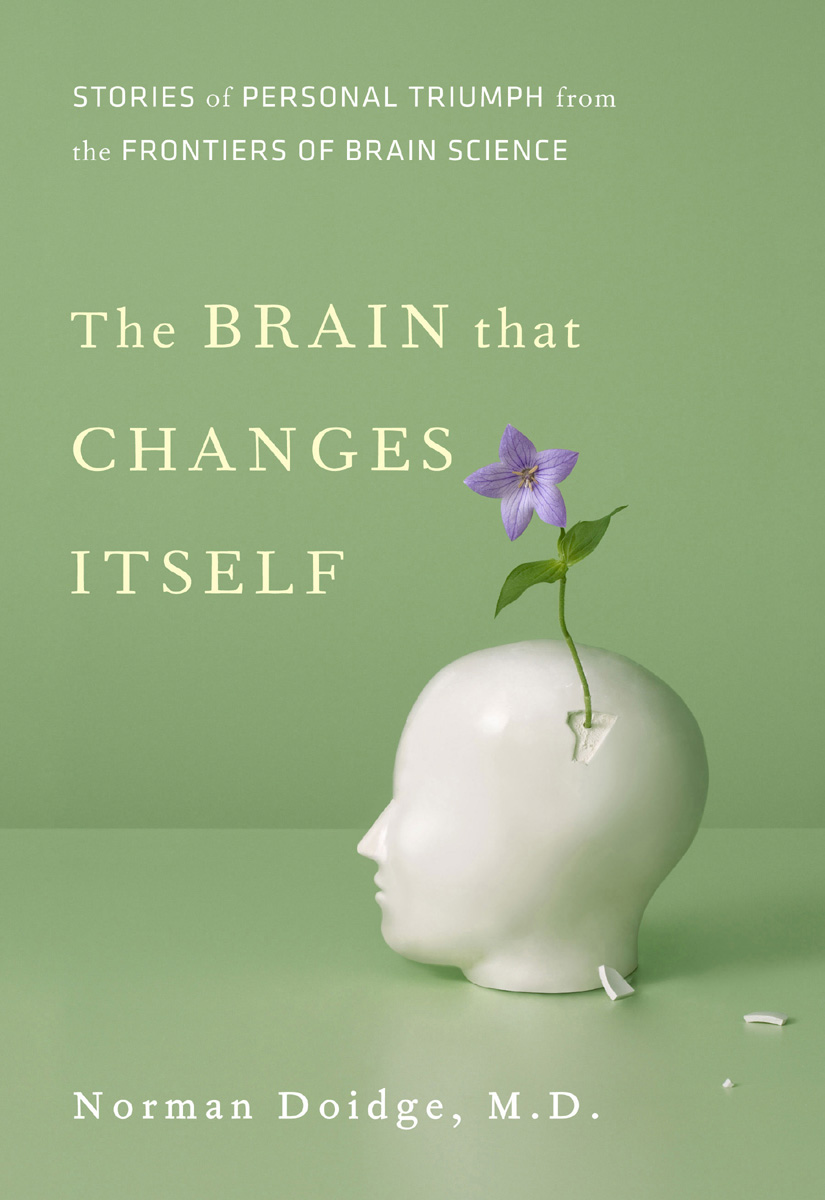The Brain That Changes Itself - Norman Doidge

## Metadata
- Author: **Norman Doidge**
- Full Title: The Brain That Changes Itself
- Category: #books
## Highlights
- Human beings exhibit an extraordinary degree of sexual plasticity compared with other creatures. We vary in what we like to do with our partners in a sexual act. We vary where in our bodies we experience sexual excitement and satisfaction. But most of all we vary in whom or what we are attracted to. People often say they find a particular “type” attractive, or a “turn-on,” and these types vary immensely from person to person. ([View Highlight](https://read.readwise.io/read/01k3aj6tmncykz2epm5g96j1hf))
- Sexual plasticity may seem to have reached its height in those who have had many different partners, learning to adapt to each new lover; but think of the plasticity required of the aging married couple with a good sex life. They looked very different in their twenties, when they met, than they do in their sixties, yet their libidos adjust, so they remain attracted. ([View Highlight](https://read.readwise.io/read/01k3ajb46f4barctxzjkq9gb2y))
- One of his most important contributions was his discovery of critical periods for sexual plasticity. Freud argued that an adult’s ability to love intimately and sexually unfolds in stages, beginning in the infant’s first passionate attachments to its parents. He learned from his patients, and from observing children, that early childhood, not puberty, was the first critical period for sexuality and intimacy, and that children are capable of passionate, protosexual feelings—crushes, loving feelings, and in some cases even sexual excitement, as A. was. ([View Highlight](https://read.readwise.io/read/01k3ajtr8zjywk1m3qvxjcdv03))
- Traces of childhood sentiments in adult love and sexuality are detectable in everyday behaviors. When adults in our culture have tender foreplay, or express their most intimate adoration, they often call each other “baby” or “babe.” They use terms of endearment that their mothers used with them as children, such as “honey” and “sweetie pie,” terms that evoke the earliest months of life when the mother expressed her love by feeding, caressing, and talking sweetly to her baby—what Freud called the oral phase, the first critical period of sexuality, the essence of which is summed up in the words “nurturance” and “nourish”—tenderly caring for, loving, and feeding. ([View Highlight](https://read.readwise.io/read/01k3ak353jja8xezj5ptfwysf9))
- When adults talk baby talk, using words such as “sweetie pie” and “baby” to address each other, and give their conversation an oral flavor, they are, according to Freud, “regressing,” moving from mature mental states of relating to earlier phases of life. In terms of plasticity, such regression, I believe, involves unmasking old neuronal pathways that then trigger all the associations of that earlier phase. Regression can be pleasant and harmless, as in adult foreplay, or it can be problematic, as when infantile aggressive pathways are unmasked and an adult has a temper tantrum. ([View Highlight](https://read.readwise.io/read/01k3ak4tfc2cjrag61h9sv2s3z))
- They reported increasing difficulty in being turned on by their actual sexual partners, spouses or girlfriends, though they still considered them objectively attractive. When I asked if this phenomenon had any relationship to viewing pornography, they answered that it initially helped them get more excited during sex but over time had the opposite effect. Now, instead of using their senses to enjoy being in bed, in the present, with their partners, lovemaking increasingly required them to fantasize that they were part of a porn script. ([View Highlight](https://read.readwise.io/read/01k3exc5t5f72502ksrekpzq59))